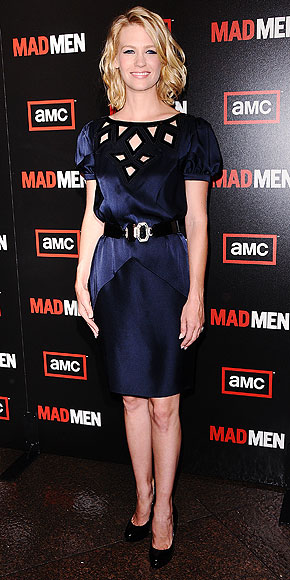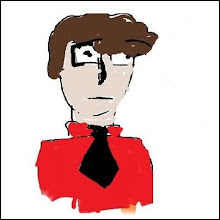Monday, March 21, 2011
Wednesday, January 19, 2011
Perfect casting for Lady Jessica
I normally find casting wish lists to be droll and pointless. People put forward their favorite crappy actors to be play roles that would never actually happen. But it's different when I do it! Anyway, I had the thought while watching Mad Men (great show) that January Jones would be the perfect person to play Lady Jessica. She is a good actress and has that regal look necessary to pull of the character. Anyway, if you want to see her in action, watch Mad Men which is a great show regardless. Apparently she is also in the new X-Men movie, but that will probably be terrible.
Here are three pictures:



Friday, October 29, 2010
Herbert's Idea Box
I've been reading non-Dune Frank Herbert sci-fi and I've noticed he definitely seems to have a number of ideas that he repeatedly uses. This is not a bad thing at all, just the areas he seems to be interested in. At this point I've only read Hellstrom's Hive and Eyes of Heisenberg but definite patterns emerge. Spoilers for the above and the Dune Chronicles.
Ecology- Dune Chronicles, Hellstrom's Hive
Genetics- Dune Chronicles, Hellstrom's Hive, Eyes of Heisenberg
Sterile low-caste members: Workers in Hellstrom's Hive, Tleilaxu Face Dancers in Dune Chronicles, Sterries in Eyes of Heisenberg
Women converted into artificial wombs: Axlotl tanks in Dune Chronicles, Stumps in Hellstrom's Hive
Secret hand language- Couriers in Eyes of Heisenberg, The Hive in Hellstrom's Hive, Bene Gesserit in Dune Chronicles
Immortal being(s) ruling society as the head of a religion- Optimen in Eyes of Heisenberg, Leto II in God Emperor of Dune
Super-weapons- Unnamed planet sterilizer used by the Honored Matres in Heretics of Dune, Project 40 in Hellstrom's Hive
Head of Military/Security who is eventually killed by his Superior(s) but always duplicated and returned to life- Max Allgood in Eyes of Heisenberg, Duncan Idaho in God Emperor of Dune
Sunday, September 26, 2010
Philosophy Question #3
Role of religion in society?
In Dune, religion plays an extremely large role in the ongoing story of the fictional world. Frank Herbert's world building is such that a fully realized world is laid out before the reader, and like the real world, religion is very important. But what role does Herbert assign religion in society? There are many schools of thought as to why religion exists. According to Freud, religion existed as wish fulfillment. Religious people simply imagined a world that was structured according to what they wished the real world was like. Good people are always rewarded in the end, evil always punished, things happen for a reason etc.
In Dune, we see this idea with a bit of a twist. The Messianic Fremen religion, like all messianic faiths, has a strong element of wish fulfillment. The Fremen have been oppressed and abused for thousands of years, and they believe that once their Messiah comes they will rise up against their tormentors. This happens in Dune when Paul becomes the Kwisatz Haderach, the Mahdi, etc and the Fremen begin their Jihad against the Imperium. Arrakis becomes the Imperial home world and billions of people are put to the sword as the Fremen exhaust their blood lust against the galaxy at large.
The interesting part of this is that Paul sees that he is largely useless in this process. The Fremen need only think their Messiah has come to set the Jihad in motion, Paul actually being alive or directing them isn't necessary. If Paul dies it would continue under his mother, if his mother died it would continue under Chani, or Stilgar. If all these people died it would continue in his memory alone. Paul knows that once Sietch Tabr believes him to be the messiah in the Cave of the Birds, the rest is a foregone conclusion assuming only a single Fremen lives to carry the word to his or her brethren.
This tells us that it isn't the physical Messiah that is needed, only the catalyst. After all, the Fremen being so powerful there was no reason the Jihad could not have begun ten, or even a hundred years earlier. All they needed was permission to go about what they wanted. In this sense, their religion really was all about wish fulfillment, they didn't NEED a messiah, they needed only to believe their messiah had come to seize power.
Thursday, August 19, 2010
Film Adaptation
There is a new Dune movie in the rumblings. Will the project fall apart? Kinda looks like it, but who knows? This will be the third time Dune has been made into an adaptation, and each time there were some problems.
I think an issue at heart is whether to make a good movie or a good adaptation? For example, someone could probably make a knockout Dune movie but cut out a number of characters:
Duncan Idaho
Thufir Huwit
Beast Rabban
Gurney Halleck
These are all important characters (well maybe not Rabban), but the point is there could be a good movie that cuts alot out. As a fan I feel a sort of natural rejection of this, but it is assuredly true. Both Stanley Kubrick films The Shining and A Clockwork Orange left the authors of the books they were based off of greatly dissatisfied, but both were great movies.
On the other hand, Peter Jackson's Lord of the Rings series, that series third try as well, managed to be both a good movie AND a good adaptation. As the newest movie started off as a studio project, not a project of a specific auteur, I doubt we'll get either.
Saturday, August 14, 2010
Dune as Anarchist text?
Trying to get a concrete political read from Dune is pretty difficult. The world presented is one of feudalism, but many of the protagonists lament the rigid class system. The hero of the first book becomes Emperor, which then leads to the deaths of billions of people. This violence is attributed to the oppression and social decay of the feudal system. So, what then should be in it's place?
That can be hard to figure too. Leto II takes control of the Empire as the God Emperor and cements all power within himself. He states that the actions he will take will make Paul's Jihad (which killed billions) look like a pleasant summer picnic. Is this good or bad? The gut response is that it's bad, very very bad. And yet, Leto II assures us that without his actions humanity would be completely extinct. Assuming Leto II as a hero, the work tells us that survival is more important than freedom. That to be alive and subservient is better than dead. A bold statement, perhaps?
Ultimatley, Leto II consolidates all power into himself so that when he dies the centralized power structure completely collapses, a sort of intentional Dark Ages. (aka the Scattering) Presumably this is meant to be followed by a Renaissance, a world where there is no Emperor or central authority. And indeed the universe of Heretics of Dune and Chapterhouse: Dune is one of no Emperors or Overlords, only various groups vying amongst each other.
Thus Leto II took all power for himself to destroy such power forever? The end seems to be an anarchist goal, but the method is something no anarchist could justify. Like I said, a bit inscrutable. Interesting nonetheless.
Sunday, June 13, 2010
Philosophy Question #2
Defining self-hood
In the world of Dune, a Lockean view of self seems to be confirmed. Locke supposed self to be the continuity of consciousness, not related to a soul or a body.
From wikipedia:
John Locke considered personal identity (or the self) to be founded on consciousness (viz. Memory), and not on the substance of either the soul or the body. Chapter XXVII "On Identity and Diversity" in An Essay Concerning Human Understanding (1689) has been said to be one of the first modern conceptualization of consciousness as the repeated self-identification ofoneself. Through this identification, moral responsibility could be attributed to the subject and punishment and guilt could be justified, as critics such as Nietzsche would point out.
According to Locke, personal identity (the self) "depends on consciousness, not on substance" nor on the soul. We are the same person to the extent that we are conscious of our past and future thoughts and actions in the same way as we are conscious of our present thoughts and actions. If consciousness is this "thought" which "that goes along with the substance ... which makes the same person", then personal identity is only founded on the repeated act of consciousness: "This may show us wherein personal identity consists: not in the identity of substance, but... in the identity of consciousness". For example, one may claim to be a reincarnation of Plato, therefore having the same soul substance. However, one would be the same person as Plato only if one had the same consciousness of Plato's thoughts and actions that he himself did. Therefore, self-identity is not based on the soul. One soul may have various personalities.
We see this in Dune in the gholas. In Dune Messiah when Hayt regains the memories of Duncan Idaho, there is no thought of him being a pseudo Duncan or a quasi-Duncan. He is treated and considered by all to be the same person as the original Duncan Idaho. This is preserved through out the series, for example, when the Tlielaxu masters continue their lives through a continuous series of gholas. The gholas of each new master is considered to be the same as the master, despite being a different body.
Subscribe to:
Posts (Atom)
